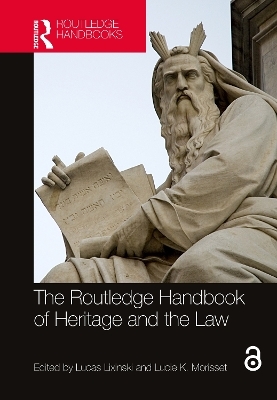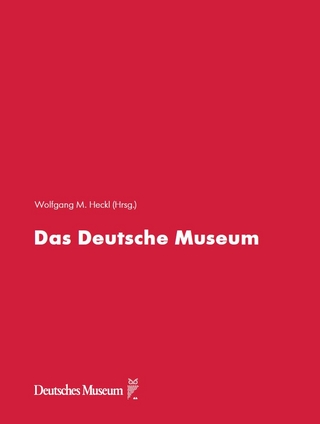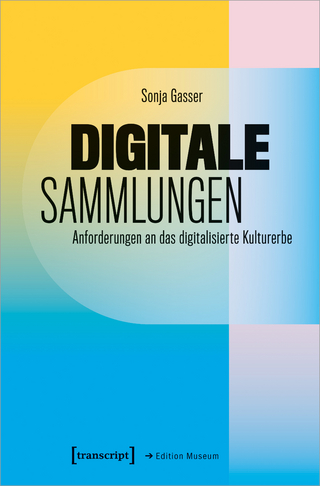
The Routledge Handbook of Heritage and the Law
Routledge (Verlag)
978-0-367-68763-2 (ISBN)
Including contributions from 41 authors working across a range of jurisdictions, the volume analyses the law as a transnational phenomenon and uses international and comparative legal methodologies to distil lessons for broad application. Demonstrating that the law is fundamentally a language of power and contestation, the Handbook shows how this impacts our views of heritage. It also shows that, to understand the ways in which the law impacts key aspects of heritage practice, it is important to tap into the possibilities of heritage as points of convergence of identity, struggles over resources, and the distribution of power. Framing heritage as a driver for legal engagement rather than a passive regulatory object, the book first reviews the legal fields or mechanisms that can shape action in the heritage field, then questions how these enable authority and give power to those who seize heritage, and finally envisions how the discussion between heritage and the law can lay new grounds in both those fields. Lifting the mists that often render the law opaque in heritage studies, the Handbook showcases the law as a medium through which the culture and the power of heritage are expressed and might be shared.
The Routledge Handbook of Heritage and the Law presents a view of the law that is aimed at those who wish to reflect on how law has changed, or could change, what heritage is and how it can support social, cultural, local, or other development. It will be of interest to scholars, students, policymakers, and practitioners working in the areas of museum studies, heritage studies, and urban studies, as well as in cultural intervention and planning.
Chapter 8 of this book is freely available as a downloadable Open Access PDF at http://www.taylorfrancis.com under a Creative Commons Attribution-Non Commercial-No Derivatives (CC-BY-NC-ND) 4.0 license.
Chapter 18 of this book is freely available as a downloadable Open Access PDF at http://www.taylorfrancis.com under a Creative Commons Attribution-Non Commercial-No Derivatives (CC-BY-NC-ND) 4.0 license.
Chapter 34 of this book is freely available as a downloadable Open Access PDF at http://www.taylorfrancis.com under a Creative Commons (CC-BY) 4.0 license.
The Routledge Handbook of Heritage and the Law | Lucas Lixinski, Lucie (taylorfrancis.com)
Lucas Lixinski is Professor at the Faculty of Law & Justice, UNSW Sydney, Australia. He is also an Associate at the Australian Human Rights Institute. Lucie K. Morisset is the Canada Research Chair in Urban Heritage and Professor in the Department of Urban and Tourism Studies of the School of Management at Université du Québec à Montréal (UQAM) and a researcher at the Interuniversity Centre Culture-Arts-Société (CELAT).
1. Introduction: The Law as an Instrument for Heritage; Part I - Scaffolding Heritage in the Law: 2. Scaffolding Heritage in the Law; 3. The Relations between Law and Heritage Studies; 4. Heritage and Law: A Wholly Mutual Relationship; 5. Heritage Law in Relation to Art Law: From Object to Museum; 6. International Cultural Heritage Law and Other International Legal Regimes; 7. Cultural Heritage Law and Other Domestic Norms; 8. Translating International Heritage Standards into Domestic Law; 9. Culture and Heritage in Constitutional Law; 10. Federalism and Heritage Law; 11. Private International Law and Cultural Heritage; 12. Cultural Heritage and Property Law; 13. Intellectual Property and Heritage Law: Mainstream and First Nations Perspectives; 14. Cultural Heritage in Urban Planning and Construction Law; Part II - Acting on Heritage: Authority and Conflicts: 15. Acting on Heritage: Authority and Conflicts. Introduction to the Section; 16. Sources of Heritage Law and Their Authority; 17. Legal Classification Within and Beyond Heritage Law; 18. Cultural Heritage Impact Assessments for Development Projects; 19. Laws on the Use of the Public Space for Heritage Purposes; 20. Who Speaks for Heritage? Standing to Pursue Action on Behalf of Heritage; 21. Alternative Dispute Resolution and Heritage; 22. Cultural Heritage Export Controls; 23. Regulating Dealers; 24. Heritage in Maritime Law; 25. Heritage Suspension: Law on Public Emergencies; 26. Heritage and Criminal Sanctions; Part III - What Does Heritage Stand For? Questions Towards New Grounds: 27. What Does Heritage Stand For? Questions Towards New Grounds; 28. Heritage as Fact or Legal Issue; 29. Contracting and Licensing for Heritage: Lessons from Fashion and Luxury Brands; 30. Private Law-Making, Self-Regulation and Heritage; 31. What is Heritage For? Law, Heritage, and Value; 32. Human Remains as Cultural Heritage; 33. Religious Heritage and the Law; 34. Heritage and Environmental Law; 35. Heritage and Human Rights Law
| Erscheinungsdatum | 16.02.2024 |
|---|---|
| Reihe/Serie | Routledge Handbooks on Museums, Galleries and Heritage |
| Zusatzinfo | 2 Halftones, black and white; 2 Illustrations, black and white |
| Verlagsort | London |
| Sprache | englisch |
| Maße | 174 x 246 mm |
| Gewicht | 1170 g |
| Themenwelt | Kunst / Musik / Theater |
| Reisen ► Reiseführer | |
| Geisteswissenschaften ► Geschichte ► Hilfswissenschaften | |
| Recht / Steuern ► Allgemeines / Lexika | |
| Recht / Steuern ► Arbeits- / Sozialrecht ► Sozialrecht | |
| Recht / Steuern ► EU / Internationales Recht | |
| ISBN-10 | 0-367-68763-1 / 0367687631 |
| ISBN-13 | 978-0-367-68763-2 / 9780367687632 |
| Zustand | Neuware |
| Informationen gemäß Produktsicherheitsverordnung (GPSR) | |
| Haben Sie eine Frage zum Produkt? |
aus dem Bereich


